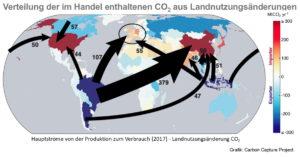Der jüngste Bericht „Global Carbon Budget 2024“, der in dem Fachjournal Earth System Science Data erschienen ist, zeigt, dass die weltweiten CO₂-Emissionen aus fossilen Brennstoffen im 2024 ein Rekordniveau erreichen werden. Verursacht durch fossile Brennstoffe aus Verbrennungsmotoren aller Art und der Landwirtschaft, stieg das globale Kohlenstoffbudget um 0,8 Prozent gegenüber dem Vorjahr. Die Aufnahme von Treibhausgasen durch natürliche Kohlenstoffsenken wie Ozeane und Wälder gleicht dies nur teilweise aus. Je höher die Temperaturen sind, desto weniger können beide Systeme aufnehmen. Besonders deutlich wird dies bei den Wäldern, wo die Wiederaufforstung bei weitem nicht ausreicht, um die Abholzung zu kompensieren. Nichts deutet darauf hin, dass der Höhepunkt bereits erreicht ist.
Höhne, Niklas und Julia Pongratz. "Das Global Carbon Budget 2024". Science Media Center. November 13, 2024. https://www.sciencemediacenter.de/... (Contributed by Gregory Autin).
Posted on 13/11/24
Recent Abstracts
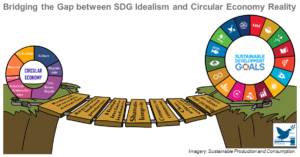
How Can the Circular Economy Support the Advancement of the Sustainable Development Goals (SDGs)? A Comprehensive Analysis
Circular economy (CE) as a framework to advance the Sustainable Development Goals (SDGs) has serious risks and various shortcomings. Where CE and the SDGs are misaligned, there is a gap between products, the socioeconomic circumstances of the people who produce and use them, and the environment where the products are ...
Posted on 17/07/24
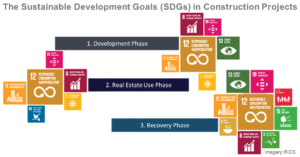
Beyond the Business Case
The building and construction industry plays a critical role in achieving global sustainability, especially in tackling the global climate crisis. The scope and breadth of sustainability encompassed by the UN Sustainable Development Goals (SDGs) is an integral part of the business case for global real estate. The SDG ...
Posted on 16/07/24
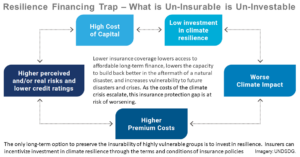
Seeking Synergy Solutions – A New Financial System to Enable Both Climate and SDG Action
The investment in sustainable development and climate actions is at the center of the SDG agenda and climate negotiations. However, there are many obstacles to realizing the potential synergies between the SDGs and climate action. The financing gap to achieve the global climate target of 1.5°C by 2030 set out in the ...
Posted on 15/07/24

Macroeconomic Impacts of Increased Decarbanisation and Green Industrial Policies in the European Union
The study models two scenarios for the period 2022 to 2050 and their impact on the economy and the labor market as well as on energy consumption/production, energy prices, and greenhouse gas emissions in the EU and Austria. The main objective of the study is to show the macroeconomic impact of certain industrial polic ...
Posted on 12/07/24

A Fundamental Right to the Environment: A Matter for Local And Regional Authorities
The ongoing effects of global warming, biodiversity loss, and pollution pose a serious risk to the enjoyment of fundamental human rights, including the right to life, health, and private and family life. The impacts of global warming have led to the recognition of a human rights-based approach to addressing climate ch ...
Posted on 08/07/24
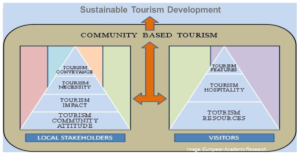
Seeking Leadership for a Sustainable Future
Sustainable development of communities requires leadership and relies on the involvement and participation of stakeholders in the future sustainability of communities. Development is implemented at the local level by communities and their stakeholders, whether residents or visitors. Organizations at international and ...
Posted on 04/07/24
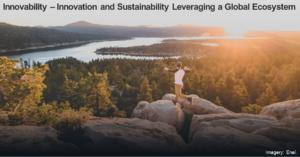
Enel Innovation and Crowdsourcing – Open Innovability
Innovation can only be meaningful if focused on sustainability. Enel recognizes that innovation and sustainability are inextricably linked and that innovation is the key to sustainable success – Enel calls this “innovability”. Society can only be sustainable by generating measurable long-term social and environmental ...
Posted on 27/06/24
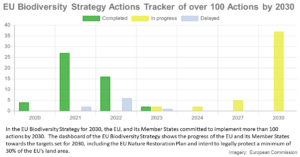
EU Biodiversity Strategy Actions Tracker
In the EU Biodiversity Strategy to 2030, the EU and its Member States have committed to implement more than 100 measures by 2030, including the EU Nature Restoration Plan to protect and restore at least 30% of the degraded and carbon-rich ecosystems by law. In Austria as in most EU countries, conservative parties and ...
Posted on 26/06/24
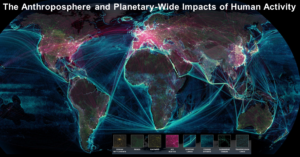
Planetary Terminology
Human societies and biodiversity on Earth are under threat because human resource consumption is exceeding or threatening the physical and ecological boundaries of our planet. To discuss and address the challenges, find solutions, and take urgent measures to tackle climate change, the terminology used in discussions a ...
Posted on 25/06/24

The Intricacies of Data Center Development
Data centers house the critical servers, storage, and networking equipment that keep data flowing smoothly in local communities and around the world. The development and operation of data centres require thorough assessment and consideration of land valuation, site analysis, power consumption and consumption capacity. ...
Posted on 24/06/24
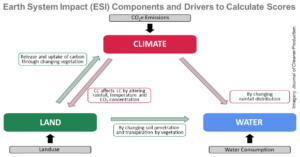
Going beyond carbon: An “Earth System Impact” Score to Better Capture Corporate and Investment Impacts on the Earth System
Four interactions – changes in climate affecting water runoff; changes in climate affecting vegetation cover; changes in vegetation cover affecting climate; and changes in vegetation cover affecting water runoff – are deemed of utmost importance for understanding the impact on the Earth system on policy-relevant timefr ...
Posted on 21/06/24

True (but Requires Context): Finland Faces the Highest Costs under EU’s Environmental Restoration Law Relative to its Economy
The European Nature Restoration Law (NRL) establishes rules and procedures for the restoration and conservation of natural resources and ecosystems to compensate or offset damage to natural resources and promote sustainable development. While center-right, far-right and conservative politicians such as Kai Mykkänen, F ...
Posted on 18/06/24
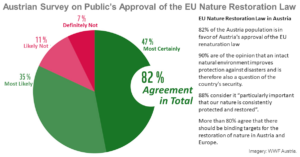
Nature Restoration: Austrian Conservatives Charge Gewessler for Abuse of Office
The Austrian Environment Minister Leonore Gewessler (Greens) voted in defiance of the coalition partner to pass the EU’s Nature Restoration Law, thereby pushing it through by a narrow majority. She decided that it was her duty to approve this central pillar of the EU’s efforts to reverse the major degradation of its l ...
Posted on 17/06/24

The Anthropocene Reality of Financial Risk
Financial services are critical for corporate activities to regenerate and promote biosphere resilience as a key strategy to confront the new risk landscape and are essential to the transformation needed for a sustainable future. Current financial risk frameworks focus mainly on financial materiality and risks to the f ...
Posted on 16/06/24

Perceptions of Stakeholders on Nature-Based Solutions in Urban Planning: A Thematic Analysis in Six European Cities
Numerous social and ecological benefits are associated with nature-based solutions (NBS). This study gathered the views of stakeholders engaged in urban planning regarding the importance of nature-based solutions (NBS). The findings revealed that stakeholders perceive numerous social and ecological advantages associa ...
Posted on 13/06/24

